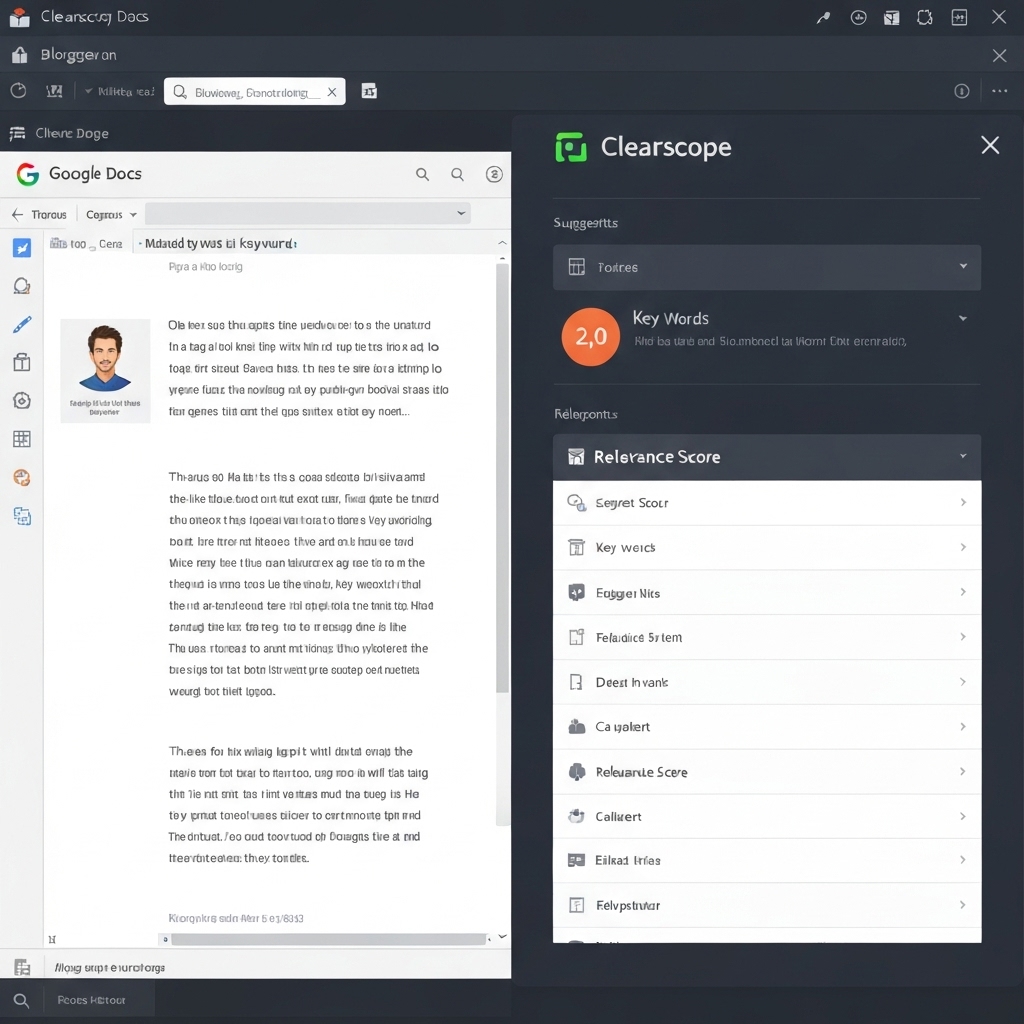AI SEO Tools Comparison: Which One is Right for Your Strategy
AI SEO Tools Comparison: Which One is Right for Your Strategy?
In the rapidly evolving world of digital marketing, AI-powered SEO tools have become indispensable for businesses aiming to stay ahead of the competition. These tools leverage machine learning algorithms to analyze vast amounts of search data, helping marketers uncover high-performing keywords, assess competitor strategies, and optimize on-page content with precision. Platforms like SEMrush and Ahrefs combine traditional SEO analytics with AI enhancements to deliver actionable insights, making it easier to craft content that ranks well across search engines.
One of the key advantages of AI in SEO is its ability to automate time-consuming tasks such as keyword clustering and content gap analysis. Tools like Clearscope and MarketMuse use natural language processing to evaluate top-ranking pages and recommend semantic keywords that improve content relevance. This not only boosts search engine visibility but also enhances the overall quality and readability of web content, aligning closely with Google’s E-E-A-T (Experience, Expertise, Authoritativeness, Trustworthiness) guidelines—a critical factor in modern SEO.
Beyond content optimization, AI-driven platforms offer predictive analytics to forecast ranking potential and identify emerging trends before they peak. For instance, Surfer SEO provides a data-rich content editor that suggests optimal word count, heading structure, and keyword density based on real-time SERP analysis. These features empower marketers to make data-backed decisions, reducing guesswork and increasing the efficiency of SEO campaigns.
When choosing an AI SEO tool, it’s important to consider your specific goals—whether it's improving content quality, scaling keyword research, or monitoring performance over time. Each platform offers a unique blend of automation, accuracy, and integration capabilities, so evaluating them within the context of your marketing strategy ensures you maximize ROI. For further insights into SEO best practices, resources like Google’s Search Central provide authoritative guidance on aligning AI-enhanced efforts with search engine standards.
What to Look for in an AI SEO Tool
When evaluating AI SEO tools, one of the most critical factors is the accuracy of keyword suggestions. A reliable tool leverages advanced natural language processing to identify relevant keywords with high search volume and low competition. Tools like Ahrefs and Moz have set industry benchmarks by continuously updating their databases to reflect real-time search trends, ensuring that content creators can target phrases that drive organic traffic.
Equally important is the ability of an AI SEO platform to provide comprehensive content grading. This feature analyzes your content against top-ranking pages, evaluating elements such as readability, keyword usage, and semantic relevance. Platforms like Surfer SEO offer detailed content editors that guide optimization in real time, helping writers produce material that aligns closely with search engine expectations.
Competitor analysis and site audit functionalities further enhance a tool’s effectiveness by uncovering gaps in your strategy and technical issues that could hinder performance. Advanced tools scan websites for broken links, slow-loading pages, and on-page SEO flaws, then prioritize fixes based on impact. Integration capabilities with platforms like Google Analytics, WordPress, or SEMrush ensure seamless workflow adoption across marketing teams.
Lastly, user-friendliness determines how quickly teams can leverage insights without a steep learning curve. The best AI SEO tools present data through intuitive dashboards and actionable recommendations, making sophisticated SEO accessible to both beginners and experts. Ultimately, the right combination of features empowers users to move beyond raw data and make strategic decisions that improve search visibility.

Surfer SEO: Data-Driven Content Optimization
Surfer SEO leverages cutting-edge algorithms to deliver actionable insights for content creators striving to improve search engine rankings. By analyzing the top-performing pages for any given keyword, it provides a detailed breakdown of critical on-page elements such as optimal word count, keyword usage, and heading hierarchy. This data-driven methodology allows writers to align their content closely with what search engines prioritize, increasing the likelihood of ranking higher in SERPs.
One of Surfer SEO’s standout features is its emphasis on semantic SEO, recommending related terms and concepts that enhance content relevance without resorting to keyword stuffing. This approach not only improves readability but also supports topical authority, a factor increasingly valued by Google’s ranking systems. Writers can use the platform’s content editor to receive real-time suggestions, ensuring every paragraph meets performance benchmarks.
For teams focused on scaling content production without sacrificing quality, Surfer SEO offers templates and historical data analysis to streamline workflows. Its integration with tools like Google Docs and WordPress makes it easy to apply recommendations directly within familiar environments. More information about best practices in SEO content strategy can be found at Moz's SEO Learning Center.
Whether you're targeting competitive niches or launching new blog initiatives, Surfer SEO equips you with the analytical depth needed to outperform competitors. By focusing on empirical data rather than guesswork, it empowers marketers and copywriters to make informed decisions. For additional insights into content optimization, authoritative resources like Google’s Search Central provide valuable context on how search algorithms interpret web content.
Clearscope: Content Relevance and Readability
Clearscope empowers content creators by leveraging data-driven insights to enhance content relevance, ensuring that articles align with what search engines prioritize. By analyzing top-performing content across the web, it identifies the most impactful keywords and related topics, allowing writers to craft comprehensive pieces that stand a better chance of ranking. This focus on topical coverage helps brands move beyond simple keyword stuffing and instead build authority in their niche.
One of Clearscope’s standout features is its seamless integration with Google Docs and WordPress, platforms widely used by marketers and publishers. As you write, Clearscope delivers real-time feedback on content clarity, readability, and optimization, making it easier to refine your message without disrupting your workflow. This instant guidance supports both SEO performance and user engagement.
What sets Clearscope apart is its ability to balance SEO requirements with reader experience. While many tools focus solely on algorithmic rankings, Clearscope emphasizes producing high-quality, accessible content that resonates with audiences. This dual focus ensures that content not only ranks well but also retains readers and encourages conversions.
For brands aiming to maintain consistency and authority in their content marketing efforts, Clearscope serves as a vital tool in bridging the gap between technical SEO and compelling storytelling. Its intuitive interface and actionable recommendations make it a favorite among digital marketers striving for content that performs organically while remaining genuinely useful to readers. Learn more about effective content strategy at Moz's guide to SEO content.

MarketMuse: Advanced Topic Modeling and Strategy
MarketMuse utilizes advanced artificial intelligence to streamline content planning through deep topic modeling, enabling organizations to uncover the full scope of a subject area. By analyzing vast amounts of web content, it identifies semantically related subtopics and evaluates how thoroughly those areas are covered across existing materials. This allows content teams to build comprehensive topic clusters that align with user intent and search engine requirements, improving overall relevance and authority. The platform's ability to map content landscapes makes it particularly valuable for enterprises managing large-scale content operations.
One of MarketMuse’s standout features is its content gap analysis, which highlights areas where competitors may outperform or where critical information is missing from current strategies. This insight empowers marketers to prioritize high-impact topics that can boost organic visibility over time. Its AI-driven recommendations go beyond keyword suggestions, focusing instead on topical completeness and depth—a key factor in modern SEO performance. For more information on how AI is transforming content strategy, visit Search Engine Land, a trusted source for digital marketing trends.
The platform also incorporates predictive analytics to forecast how well content might perform based on topical coverage and structure. These insights help editorial teams make data-backed decisions before publishing, reducing guesswork and increasing efficiency. While MarketMuse is designed with enterprise needs in mind—offering scalability, collaboration tools, and integration capabilities—it may be less suited for small businesses due to cost and complexity. Organizations looking to understand enterprise SEO tools can explore resources at Moz Learn SEO, which offers foundational knowledge on search optimization principles.
By combining AI-powered research with strategic content planning, MarketMuse enables large teams to maintain consistency and authority across thousands of pages. Its focus on semantic relationships and content maturity supports long-term SEO growth, helping enterprises stay ahead in competitive niches. As search engines continue to prioritize expertise and comprehensiveness, tools like MarketMuse become increasingly essential for maintaining a robust online presence.
Jasper (with SEO Mode): AI Writing Meets Optimization
Jasper is a powerful AI writing assistant designed to streamline content creation, particularly for marketers aiming to scale their efforts efficiently. While its core functionality focuses on generating high-quality written content, Jasper’s SEO mode enhances its utility by allowing users to optimize articles around specific target keywords. This feature ensures that the content not only reads naturally but also aligns with search engine best practices, improving visibility and ranking potential. By integrating keyword guidance directly into the writing process, Jasper helps creators maintain relevance without extensive manual optimization.
When paired with established SEO tools like Surfer or Clearscope, Jasper becomes even more effective. These integrations enable real-time content analysis based on top-performing pages, allowing writers to fine-tune their drafts for semantic relevance, keyword density, and structure. The synergy between Jasper’s generative capabilities and these analytical platforms accelerates production timelines while preserving content quality—a critical advantage in competitive digital marketing environments.
Marketers facing tight deadlines or managing large content calendars benefit significantly from Jasper’s ability to produce drafts rapidly without compromising on SEO fundamentals. Whether crafting blog posts, product descriptions, or landing page copy, users can rely on Jasper to generate focused, keyword-rich content that resonates with both audiences and algorithms. This efficiency makes it a preferred choice for teams looking to maintain a consistent publishing schedule while adapting to evolving search trends.

Conclusion: Matching the Tool to Your Needs
Choosing the right AI SEO tool hinges on aligning the platform’s strengths with your team’s unique objectives and operational scale. For organizations prioritizing data-centric content optimization, Surfer SEO offers robust analytics powered by real-time SERP data, helping creators fine-tune on-page elements for maximum visibility.
If readability and seamless integration into existing workflows are paramount, Clearscope stands out by combining keyword intelligence with content grading that promotes clarity and engagement, making it ideal for content editors and marketing teams focused on quality.
Enterprise-level businesses tackling complex content ecosystems may find strategic value in MarketMuse, which leverages AI to map content gaps and drive topic authority at scale. Meanwhile, Jasper boosts content velocity by streamlining ideation and drafting, especially when used alongside other SEO platforms.
Ultimately, success lies in evaluating core priorities—be it speed, analytical depth, user-friendliness, or scalability—and selecting a tool that not only fits your current workflow but also grows with your SEO ambitions.
